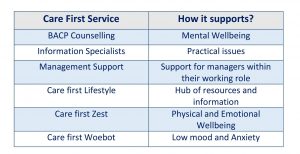With light at the end of the tunnel with the COVID vaccines taking centre stage it can be easy to be swept up in the excitement with the prospect of things returning to normal. However, things will not change just yet and it is important to remember to support friends, family and loved ones who may be isolating on their own, or have been shielding for a long time.
We all have varying experiences of lockdown, some have had it particularly hard and it is clear that being in lockdown and isolated for long periods of time can take a toll on our mental health. This is why it is as important as ever to continue to support loved ones that need it during what could be the last stretch of the pandemic.
Ways to continue supporting loved ones
Keep in touch and check in Staying in contact seems an obvious one, but it can be all too easy to let it slip, especially when things are looking up and our own lives can take precedent. However, it is important to just check in every now and then. Just touching base, maybe a message or a quick phone call can make all the difference to someone who is feeling isolated and potentially lonely.
Offer to help out with supplies
If someone is self-isolating, or they need to shield because they may be deemed high risk, make sure you help out where possible with their supplies such as shopping, prescriptions etc. as it otherwise may be difficult for them to get what they want or need.
Have a backup plan
If you are the sole supporter of a loved one helping them with their supplies etc. then it would be a good idea to have a contingency plan for somebody else to take over, if for any reason you were unable to continue helping for a period of time. This way the one you’re supporting won’t go without, but it will also ease some responsibility from your shoulders.
Delivering care
If you are caring for someone and entering their home during the COVID-19 Pandemic it is important to maintain your hygiene standards until it is completely safe. Despite light at the end of the tunnel, you should continue to be as cautious as you can and careful not to bring any unwanted bugs/viruses into that person’s home.
Encourage them
Many of us know, being in lockdown and having our lives disrupted as much as they have can lead to a deterioration of our routines and good habits. Try to keep loved ones motivated and encourage them to be productive, keep a bit of routine and remain active. This will help their wellbeing both physically and mentally.
Entertainment
If your loved ones that are self-isolating aren’t very good with their technology and how to utilise it for entertainment – then show them how. Help get them set up with some things that will help avoid boredom, bring their favourite magazines, newspapers etc. too.
More information
If you would like to view the Webinar on ‘Continuing to support isolated and lonely loved ones’ this is being delivered live on Friday 15th January at 12pm, please use the following link to register for this session – https://attendee.gotowebinar.com/register/1120805181354911757
If you are unable to join the webinar live, a recording of the session can be accessed using the same link above after the webinar has taken place. If you feel you may need some support, you can contact Care first.
Care first is a leading provider of confidential, professional counselling, information and advice services. All employees are eligible to use Care first, our services include; telephone counselling, information services and online support. Call Care first on the Freephone number provided by your organisation and you can speak to a professional in confidence.







